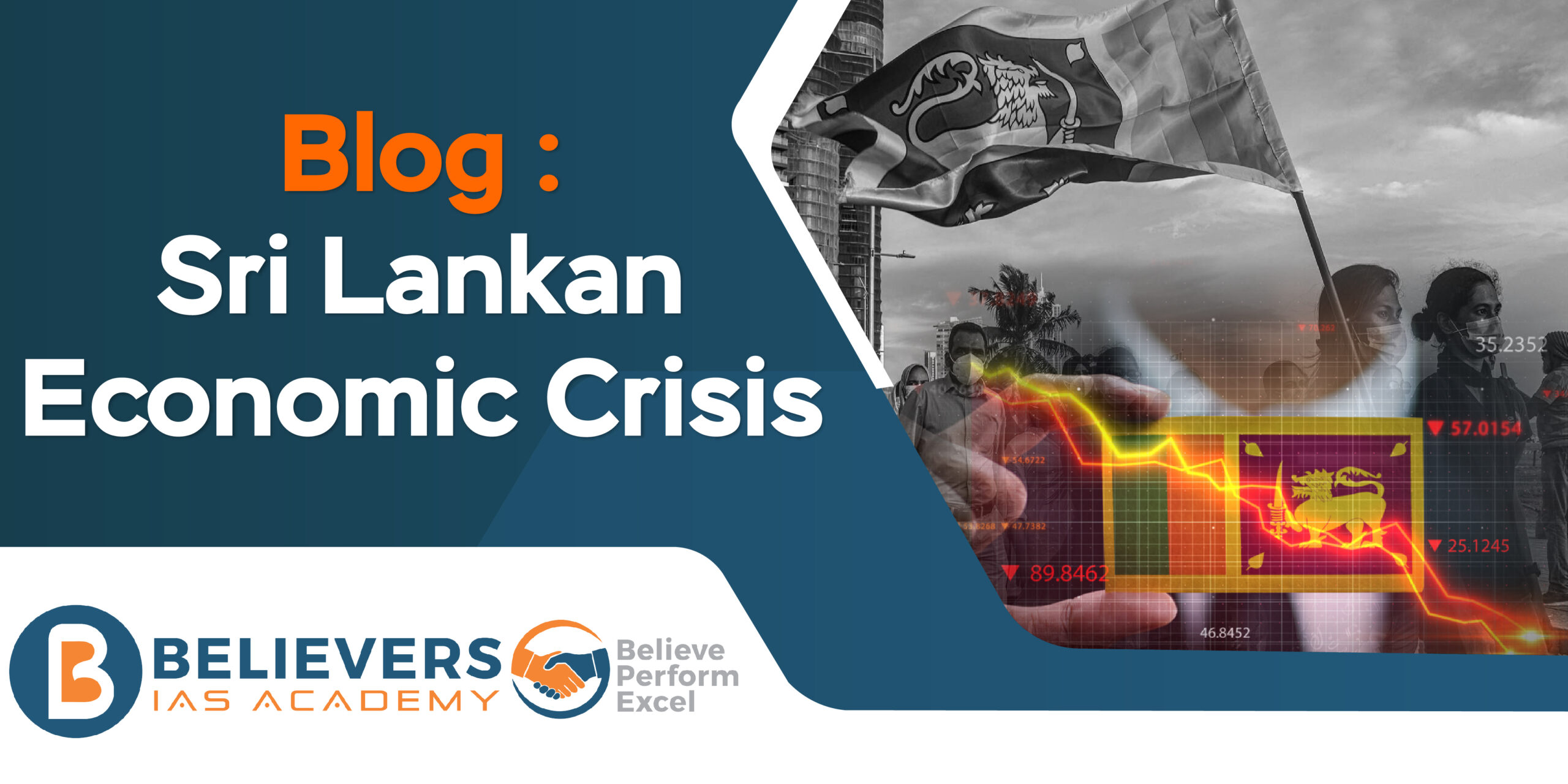Blog:Sri Lankan Economic Crisis
- Sri Lanka’s island nation is experiencing an ongoing economic crisis that began in 2019.
- Since gaining independence in 1948, this country has experienced its worst economic crisis. Unprecedented levels of inflation, a close to complete depletion of foreign exchange reserves, a shortage of medical supplies, and an increase in the cost of essential commodities are the results.
- According to reports, several interrelated reasons, including tax reductions, money creation, a national initiative to switch to organic or biological farming, the 2019 Easter bombings in Sri Lanka, and the COVID-19 pandemic’s effects in Sri Lanka, are what caused the crisis to start.
- The consequent economic woes led to the protests in Sri Lanka in 2022.
What are the factors that led to the Sri Lankan Crisis?
Covid-19 epidemic:
- The tourism sector, which contributed 10% of Sri Lanka’s GDP, was shut down as a result of the epidemic.
- Foreign exchange reserves significantly decreased as a result of the decline in tourist arrivals, falling from $7.5 billion in 2019 to $2.8 billion in July 2021.
Reduced Government Revenues:
- As part of a populist campaign to win the 2019 presidential and 2020 legislative elections, the government announced tax cuts.
- Government revenue fell as a result of the tax cuts, and the budget deficit shot up from 5% in 2020 to 15% in 2022.
High Cost of Living and Soaring Inflation:
- The government’s monetary policies contributed to rising inflation, which peaked in February 2022 at 17.5%.
- Ordinary Sri Lankans struggled to purchase essentials due to the high cost of living brought about by inflation, which led to discontent and protests.
- Lack of Foreign Reserves and Currency Depreciation: Sri Lanka had a serious lack of foreign reserves as of March 2022, totalling just US$2.3 billion.
- The price of imports, especially necessities like fuel, food, and medicine, soared as a result of the currency’s depreciation.
Impact of Hambantota Port Project:
- The Sri Lankan government’s construction of the Hambantota port has had an adverse effect on the debt load of the nation.
- Sri Lanka increased its debt burden by borrowing $1 billion from China for the project.
The conflict between Russia and Ukraine:
- Russia and Ukraine are important trading partners for Sri Lanka’s tea exports and tourism industry.
- These commercial relations were disrupted by the ongoing conflict between Russia and Ukraine, which had an impact on Sri Lanka’s economy’s ability to recover.
Agricultural Policy and Food Shortage:
- The government implemented a nationwide ban on chemical fertilizers and pesticides in June 2021 to promote organic farming.
- However, this policy faced criticism from the scientific and farming community.
- The rapid transition from chemical farming to organic farming was difficult due to low rainfall and the associated challenges of organic farming.
- This policy led to a massive drop in agricultural output, particularly in the tea industry, causing food shortages.
- The government was forced to import food to address the scarcity, further straining the economy.
How is the situation in Sri Lanka going to affect India?
Due to its proximity and close economic links, India may be affected by the economic crisis in Sri Lanka. Here are a few possible effects it might have on India:
- Trade: One of India’s key trading partners in South Asia is Sri Lanka. The economic crisis may have a detrimental effect on Indian exports and the trade balance if it causes a considerable drop in Sri Lanka’s purchasing power or a reduction in its imports from India.
- Investments: India has significantly increased its financial involvement in Sri Lanka, particularly in infrastructure development and related sectors like tourism. Indian businesses doing business in Sri Lanka may be affected if the crisis has an impact on the local economy or the profitability of their investments.
- Tourism: India is a significant source of tourism for Sri Lanka. If the economic crisis influences Sri Lanka’s tourism sector, fewer Indian visitors may travel there, which would affect the money made from tourism-related activities.
- Regional stability: Any neighbouring country’s economic instability could have greater effects on the region as a whole. Indirectly affecting India’s interests is the possibility that the Sri Lankan crisis, if it worsens and sparks political or civil unrest, will have broader implications for regional security and stability.
What should be India’ Response?
Before the Sri Lankan Economic Crisis get worse, India should step in. Since Sri Lanka’s independence, their bilateral ties have always been solid. India can take advantage of this chance to improve its connections even further. India can help Sri Lanka out of this difficult predicament while reducing the likelihood that China will use Sri Lanka as a base for operations against India.




